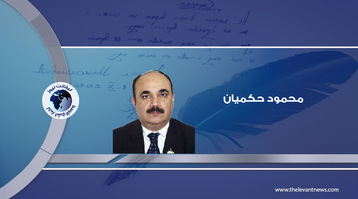-
The Butchery of Bucha

Another Ukraine landmark has been made infamous by the carnage of Russia’s invasion. The town of Bucha and its less than 40,000 residents could never have imagined that they would find themselves in the eye of this terrible storm. The 13th of September will mark Bucha Day later this year, but celebrations will be marked by only those who survived perhaps the most wanton acts of aggression of the conflict to date.
Strong language and accusations of war crimes and genocide have been used since the start of events over 40 days ago now. Yet the seeming inevitability of cities being left reeling from the shells of heavy artillery is a stark contrast to the civilians who’ve suffered and died in Bucha. Bodies left lying in the street, half naked civilians handcuffed and hidden in mass graves or hastily left on burning tyres, perhaps to hide the evidence of what happened to them.
Reports from those in the town who’ve survived spoke of different types of Russian troops adopting vastly different approaches to Ukrainian civilians. Some were polite, knocked on doors and shared rations. As the battle turned against the Russian force’s brutality was unleashed and random killings and systematic executions terrorised the population. Evidence as to what exactly happened is not of course fully known yet.
However, social media has put the story out into the open shortly after Ukrainian forces took back the town. Experts have ascertained that the invasion of Ukraine is not the first social media war, but it is the most viral. Some 75% of Ukrainians use the internet whereas when Russian bombers began pounding Syria only 30% of the population was online.
Media was able to access Bucha soon after its liberation and quickly verified parts of the story. Seeing the state of bodies for themselves and the state of decomposition enabled journalists to confirm almost immediately that they’d died during Russia’s occupation of the town, torpedoing the narrative coming out of Moscow that this was a staged event or that the civilians had been killed by Ukrainian forces.
US Secretary of State Antony Blinken said images of some 300 dead Ukrainian civilians found in the town of Bucha after Russian troops left were a "punch in the gut" and those responsible for any war crimes must be held accountable. French President Emmanuel Macron has expressed support for banning Russian oil and coal as part of a new round of sanctions against Russia, after reports emerged from Bucha. Britain’s Prime Minister Boris Johnson vowed not to rest ‘until justice is served’ as he condemned Russia’s ‘despicable attacks’ on Ukrainian civilians in Bucha.
Yet accountability for crimes in war are the exception, not the rule. Those that have managed to find resolution often do so well after the event itself. Don’t expect Russian soldiers who served in Bucha appearing in the Hague anytime soon. Whilst judicial accountability may be a distant prospect there can be little doubt that the scenes from Bucha will harden positions around countries who’ve supporting Ukraine with weapons and who are pursuing stringent sanctions against Russia.
President Zelensky was quick to visit the town amidst tight security. He condemned Putin’s forces for bringing ‘evil to our land’. The events in Bucha, whether they are defined as a massacre or a slow-motion slaughter, will likely solidify Ukrainian resistance to further Russian operations in the east and the south of the country. It could also see a more rapid movement of vulnerable civilians to the west as people avoid finding themselves under a Russian yolk that can have such terrible consequences.
As President Macron alluded to, Bucha may speed up the rush that European states are making to wean themselves off reliance on Russian gas. European civilians themselves may be more willing to put up with higher prices and even the rationing of energy in light of the Bucha images being shared far and wide. Indeed, the events in the small town of Bucha show how all parts of a vast military operation are open to scrutiny that is amplified by the tools of modern communications with huge reverberations in the politics of the conflict at large.

BY: James Denselow
You May Also Like
Popular Posts
Caricature
opinion
Report
ads
Newsletter
Subscribe to our mailing list to get the new updates!




















